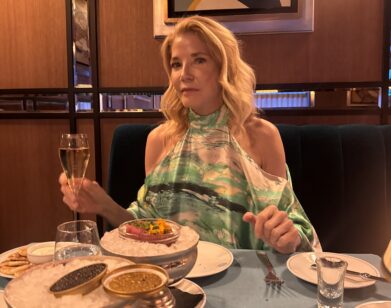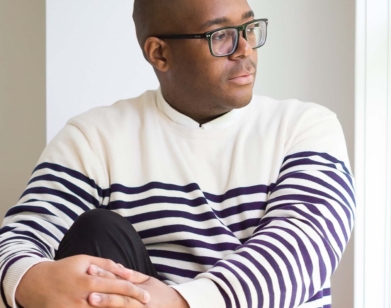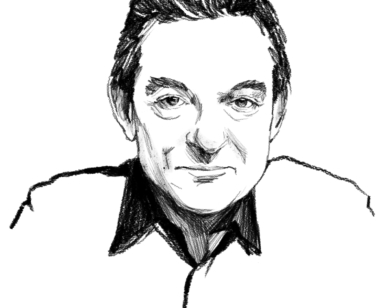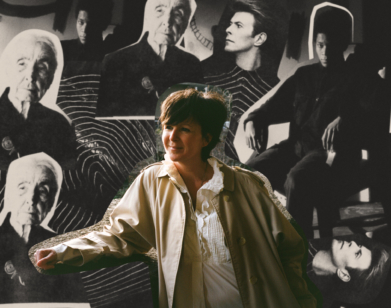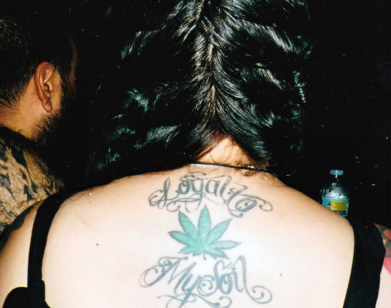We The Women Is Making Plays for The Digital Age

Nathalie Love and Samantha Ressler, founders of We The Women. Photo by Chloe Horseman.
When the pandemic shut down Los Angeles’ theaters, Samantha Ressler and Nathalie Love were faced with a problem. Ressler and Love, actors who have worked in all facets of the theater world, pride themselves on their resourcefulness—they’ve been producing grassroots theater events in New York and Los Angeles and donating substantial proceeds to local organizations since they started We The Women, a nonprofit theater company, in 2016. But the pandemic threatened the core of the duo’s mission—to build community for women in the performing arts through intimate live performances. Rather than hunker down until conditions improved, Ressler and Love launched a project that they hoped could both transcend and encapsulate the eerie isolation of the moment. The result is Keep This Far Apart, a digital anthology of short plays painstakingly directed and filmed via Zoom by a selection of the theater’s rising stars. The six-episode production (directed by Whitney White & Tyne Rafaeli, and written by Ming Peiffer, Jihan Crowther, Joanna Castle Miller, Gina Young, Anna Ziegler, and Tyler English-Beckwith) has been making the rounds on the film festival circuit, and premieres today on Interview. To mark the occasion, we sat down with Ressler and Love for a conversation about creating intimacy in isolation, masturbating over Zoom, and bringing theatre to new audiences. Screen the full series below.
———
INTERVIEW: How did this project start?
SAMANTHA RESSLER: We the Women started in 2016 as a theatre company. Nathalie and I both have roots in the theater and we love theatre. When one of our stage concepts was turned into an Amazon Prime show, Yearly Departed, we transitioned into this cross-genre production company. We really wanted to create a space where theater content can live both on stage and screen. During the pandemic, when theatres shut down, we had to figure out how to nurture these playwrights and their stories without that theater space backing them up.
NATHALIE LOVE: When the world shut down, we had raised a significant amount of money, and we wanted to find ways to engage during a confusing time where nobody knew what the fuck was happening. We invited two theatre directors onboard, Whitney White and Tyne Rafaeli, and these short form plays emerged.
RESSLER: It was a process of collaboration. We shared a prompt with our playwrights—write about isolation, humanity, and femininity. The six playwrights that we reached out to were generous enough to say yes, and each wrote a play that became their own singular, unique answer to that prompt. We worked with Ming Peiffer, the first Asian woman to be nominated for a Drama Desk Award for best play, Joanna Castle Miller, who is a New York stage and Film Nexus fellow, Tyler English Beckwith, the recipient of the Leah Ryan Fund for Emerging Women Writers and the Kennedy Center Paul Vogel Play Prize, Gina Young the creator of her own Sorority theatre company in L.A., Jihan Crowther, who is a writer on the show Daisy Jones & The Six, and Anna Ziegler, an award-winning playwright who I met while acting in her play Actually at the Geffen. Keep This Far Apart is a six part anthology series. We’ve gone through the festival circuit, and we are lucky enough to be premiering it on Interview. But one day, we want to stage it as a play.
INTERVIEW: What was the filming process like?
LOVE: For this project, we were very limited. We had iPhones and were shooting over Zoom. Those devices feel like actual characters in the work, because we had to adapt around them.
RESSLER: For instance, we brought on a lighting designer, Jen Schriever, who was just nominated for a Tony. She knew we’d be filming on our iPhones and knew Tyne and Whitney would be directing remotely. She was able to build a visual language for each individual piece, to make the project feel cinematic and coherent. It’s both a play and it’s a short film.
INTERVIEW: How do you maintain the intimacy of the theatre when working via Zoom?
RESSLER: In one of the episodes of Keep This Far Apart, there’s a scene where Zoë Chao is masturbating. That’s a really intimate thing to put into the world— and to do over Zoom. Tyne—the director—and Zoë worked to create a safe environment for vulnerability and sadness, but also the humor of that moment. It’s about the communication of making those moments intimate and talking to each of the actors.
LOVE: Each scene is also just the actors and their phones—they’re inherently private moments.
RESSLER: From the beginning, we didn’t want to do this if it was going to turn out like “Zoom content” because we wanted these six plays to transcend that.
LOVE: This is a very fragile time. Everybody is going through collective grief, confusion, and loneliness. I popped into the Zoom during Zoë’s monologue performance, and realized that everybody on the call was in tears watching this incredible, beautiful moment. This project really brought people together.
RESSLER: Honestly, I would say I cried during all six plays.
LOVE: [Laughs] Me too.
RESSLER: They were all extremely moving. You’re connecting with someone who you’ve never met in person, and watching them reveal themselves.
LOVE: We also filmed these in June 2020, during such a painful moment in our history. Protests were taking place while we were filming these.
RESSLER: It feels very full circle, because we’re here discussing the project over Zoom. I have Covid, and it’s June 2022. We’re still in this reckoning. When people ask, “Is this Covid content?” I say, “I hope not. This is a time capsule that you can look at through a theatrical lens.”
LOVE: That full circle is exactly why we do what we do: create art to encourage healing, and to create catharsis.
INTERVIEW: How does it feel to revisit this project after all this time?
RESSLER: We’re hosting a screening of the project in L.A. this weekend. It’s going to be interesting, because many of the people involved in this project have never met in person, and many are coming. I’m so curious what it will be like to watch this with the group of women who created it—it will be so different than watching it alone.
LOVE: I had to take some space from the project personally, because it’s a marker of a very specific time that was traumatic for everyone. But it’s exciting to revisit now, and to watch it together.
RESSLER: We’re doing a follow up Q&A with as many of the artists and creators as we can. Surprisingly, so many people are able to come and it’s great timing that we’re able to connect as the larger entity and a team. Usually when you’re filming something, you go to set all together and that was not the experience that we had, but it still felt so intimate and close. We’re excited to share it and get it out into the world. It’s not cookie cutter because it’s this intimate, theatrical piece that bridges the gap between theater and digital.
INTERVIEW: Has this project changed the mission of We The Women?
LOVE: It’s engaged this whole new community for us, and it’s spawning so many new projects.
RESSLER: Nathalie and I have a bit that, when we first started We the Women, we were tricking people into coming to the theater—we’d have live music, food and drinks, and merchandise tables, so we were able to get a much more vibrant array of audiences. Now, I feel like we’ve left that feeling of needing to lure people in behind.
LOVE: Our goal, always, is to bridge the gap—between theatre and new audiences, between live performance and digital, and between people. I think that’s still the mission behind everything we do.

